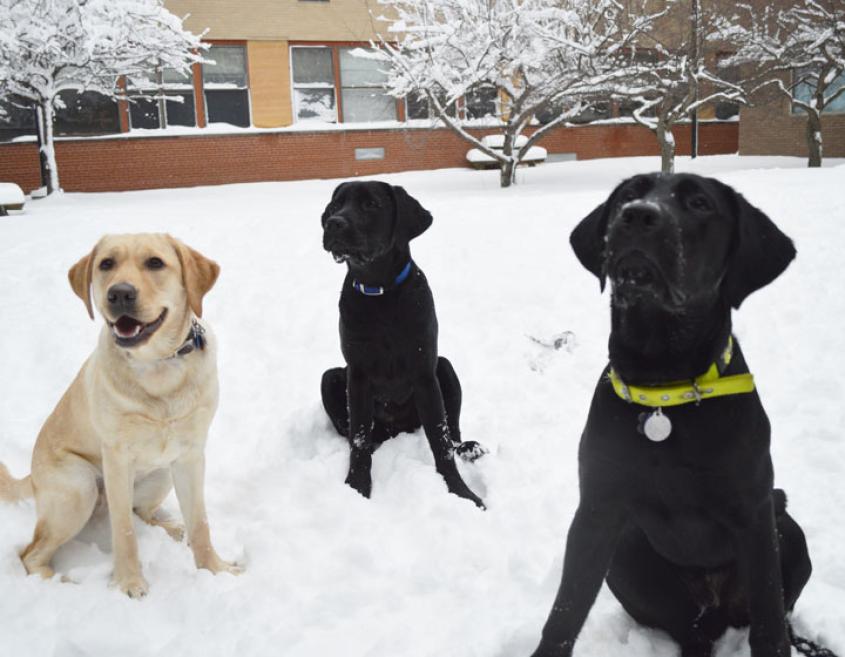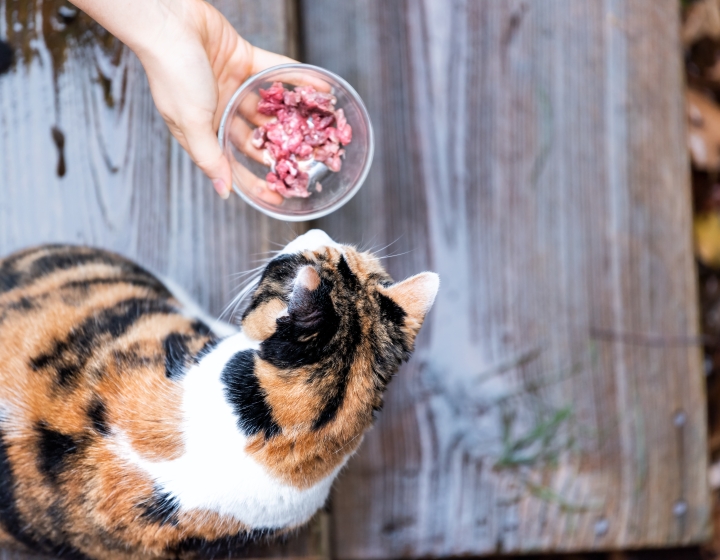CVM cold-weather tips for pet owners
Don’t let Frisky freeze!
Dr. Brian Collins, section chief of community practice service at the Cornell University Hospital for Animals at Cornell’s College of Veterinary Medicine has some important advice for animal owners during the chilly winter months:
“Pet-proof the storage and disposal of wintertime hazards. The active ingredient in most brands of antifreeze is ethylene glycol, a sweet-tasting liquid that can be attractive to an animal, but is highly toxic. Store it where it is out of reach of pets, and clean up any spills right away," he says. Additionally, "The ashes from wood stoves and fireplaces can burn pets if they contain live embers. Make sure the ashes are cool before removing them.”
He also notes that owners should be mindful of the cold temperatures. “Animals that live in cold-weather climates are at risk for hypothermia, a potentially fatal drop in body temperature that can result from prolonged exposure to a freezing environment," says Collins. "Very young animals, older animals, and short-haired breeds are the most vulnerable.”
How to tell if your pet is feeling the freeze? “If a dog is picking up its feet or seems reluctant to walk this may be a sign that he/she is too cold. Small and short-haired dogs may need coats for short walks in cold, windy weather. They may need boots if they will be outside for longer periods of time," Collins says. "Dogs that live in areas where salt is used to control ice may need boots or to have their feet washed off when coming indoors. Longer-haired dogs may collect ice and snow on their feet, so check them regularly while outdoors. And consider trimming the fur on the feet to help prevent ice accumulation.”
As for feline friends, Collins says, “Cats are drawn to warmth. Close the door to the clothes dryer, and get in the habit of knocking on the hood of your car to scare away any cats warming themselves on the engine.”
While companion animals should not be left outside for long periods in the cold, Collins has advice for owners that might have to do so. “Dogs and cats who spend time outdoors should have shelter from the wind and cold as well as a source of fresh water. Straw works well as an insulator in dog houses.”
By following these key tips, you can help your furry friends stay cozy and safe all winter long.
Contact
Claudia Wheatley
607-216-7724
claudiawheatley@cornell.edu
College of Veterinary Medicine
Cornell University




